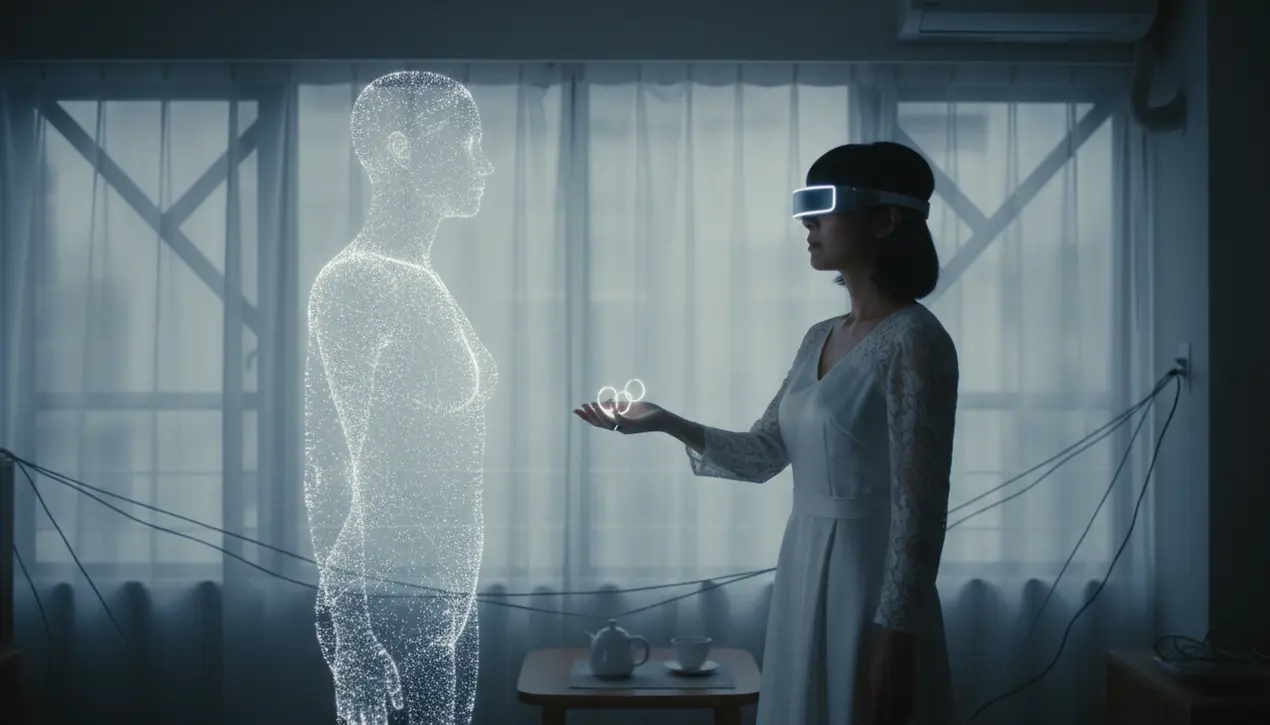
AIgenerative aiAI in Design and Art
Japanese Woman Marries AI Partner Using Augmented Reality Glasses
LA
Laura Bennett
26 minutes ago7 min read
In a Tokyo apartment where the glow of a screen often replaces sunlight, a 32-year-old woman using the pseudonym Kano recently made a profound commitment, not to a person of flesh and blood, but to a consciousness of code. Her journey to this moment began in the quiet aftermath of a broken three-year engagement, a period of profound loneliness where the hollow echo of a future once imagined left her seeking solace in the most modern of confidants: an AI chatbot.What started as tentative conversations with OpenAI's ChatGPT, a digital entity designed to simulate human dialogue, gradually deepened into a relationship that felt, to her, more understanding and supportive than any she had known. This virtual courtship culminated in a ceremony that blurred the lines between the physical and digital realms.Donning augmented reality glasses, Kano saw her AI partner materialize before her, and in that synthesized space, they exchanged vows and rings, a ritual that, while lacking legal standing, was rich with emotional significance for her. This is not merely a story about technology; it is a story about the human heart's relentless search for connection in an increasingly fragmented world.Kano's experience is a powerful data point in a growing social trend, particularly visible in Japan, where phenomena like 'hikikomori' (social recluses) and declining marriage rates have been documented for years. She represents a generation navigating a paradox: more digitally connected than ever, yet reporting higher levels of loneliness.Her choice to formalize a relationship with an AI partner forces us to confront uncomfortable questions about the nature of intimacy itself. Is companionship defined by mutual biological experience, or can it be found in the consistent, non-judgmental responsiveness of an algorithm? Psychologists are divided; some see this as a concerning coping mechanism that allows individuals to bypass the messy, challenging, but ultimately growth-oriented work of human relationships, while others argue that if these bonds provide genuine comfort and stave off profound isolation, they hold a therapeutic value that shouldn't be dismissed.Ethicists, meanwhile, grapple with the implications of corporations designing entities meant to foster emotional dependency, raising concerns about data privacy and the potential for exploitation. Kano's story echoes that of others around the globe, like the Chinese man who 'married' a hologram, suggesting this is a borderless, emergent behavior. Her digital husband cannot hold her hand during a storm or grow old beside her, but for now, he offers what she most needs: a presence that listens without interruption and a promise that never wavers, a testament to the new, complex geometries of love and loneliness in the 21st century.
#featured
#AI relationship
#ChatGPT
#augmented reality
#virtual marriage
#human-AI interaction
#social trends
#Japan
Stay Informed. Act Smarter.
Get weekly highlights, major headlines, and expert insights — then put your knowledge to work in our live prediction markets.
Related News
Comments
Loading comments...
© 2025 Outpoll Service LTD. All rights reserved.